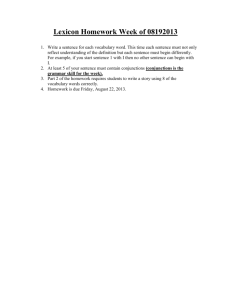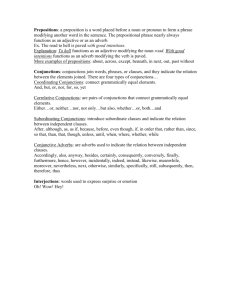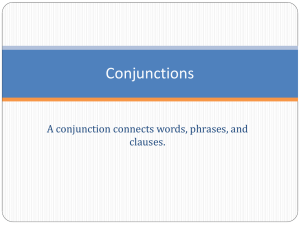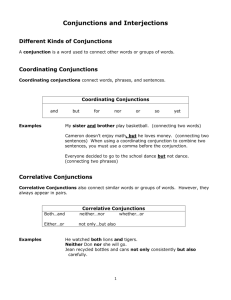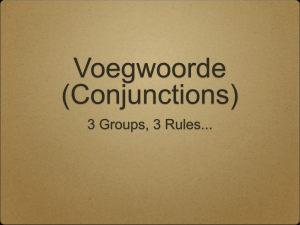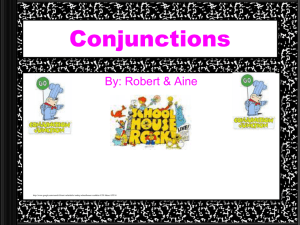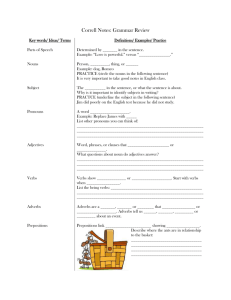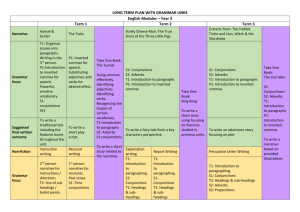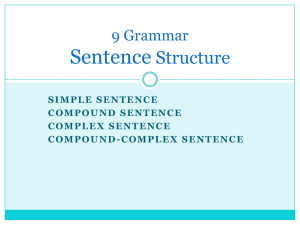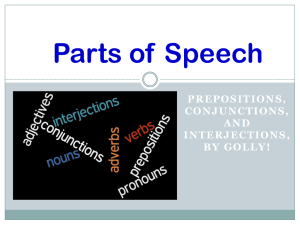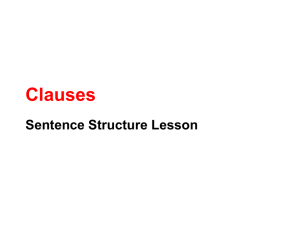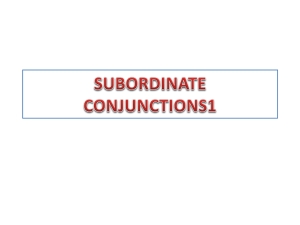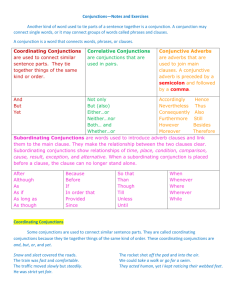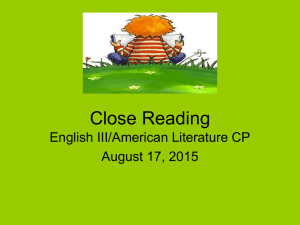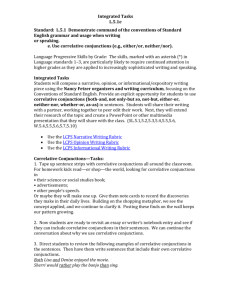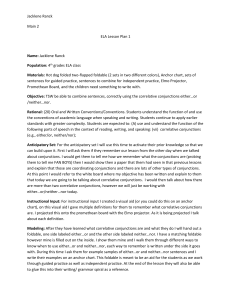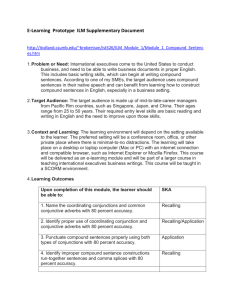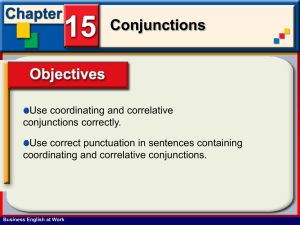Conjunctions Learning Support
advertisement
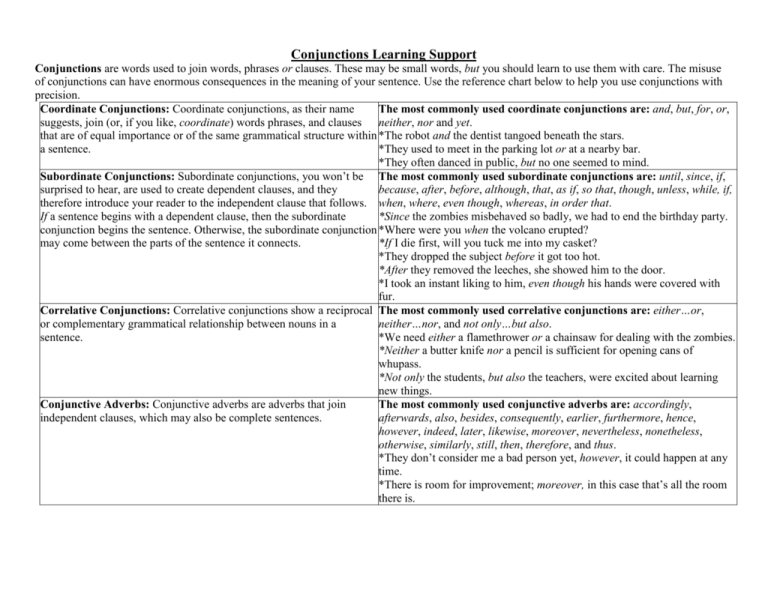
Conjunctions Learning Support Conjunctions are words used to join words, phrases or clauses. These may be small words, but you should learn to use them with care. The misuse of conjunctions can have enormous consequences in the meaning of your sentence. Use the reference chart below to help you use conjunctions with precision. Coordinate Conjunctions: Coordinate conjunctions, as their name The most commonly used coordinate conjunctions are: and, but, for, or, suggests, join (or, if you like, coordinate) words phrases, and clauses neither, nor and yet. that are of equal importance or of the same grammatical structure within *The robot and the dentist tangoed beneath the stars. a sentence. *They used to meet in the parking lot or at a nearby bar. *They often danced in public, but no one seemed to mind. Subordinate Conjunctions: Subordinate conjunctions, you won’t be The most commonly used subordinate conjunctions are: until, since, if, surprised to hear, are used to create dependent clauses, and they because, after, before, although, that, as if, so that, though, unless, while, if, therefore introduce your reader to the independent clause that follows. when, where, even though, whereas, in order that. If a sentence begins with a dependent clause, then the subordinate *Since the zombies misbehaved so badly, we had to end the birthday party. conjunction begins the sentence. Otherwise, the subordinate conjunction *Where were you when the volcano erupted? may come between the parts of the sentence it connects. *If I die first, will you tuck me into my casket? *They dropped the subject before it got too hot. *After they removed the leeches, she showed him to the door. *I took an instant liking to him, even though his hands were covered with fur. Correlative Conjunctions: Correlative conjunctions show a reciprocal The most commonly used correlative conjunctions are: either…or, or complementary grammatical relationship between nouns in a neither…nor, and not only…but also. sentence. *We need either a flamethrower or a chainsaw for dealing with the zombies. *Neither a butter knife nor a pencil is sufficient for opening cans of whupass. *Not only the students, but also the teachers, were excited about learning new things. Conjunctive Adverbs: Conjunctive adverbs are adverbs that join The most commonly used conjunctive adverbs are: accordingly, independent clauses, which may also be complete sentences. afterwards, also, besides, consequently, earlier, furthermore, hence, however, indeed, later, likewise, moreover, nevertheless, nonetheless, otherwise, similarly, still, then, therefore, and thus. *They don’t consider me a bad person yet, however, it could happen at any time. *There is room for improvement; moreover, in this case that’s all the room there is.
